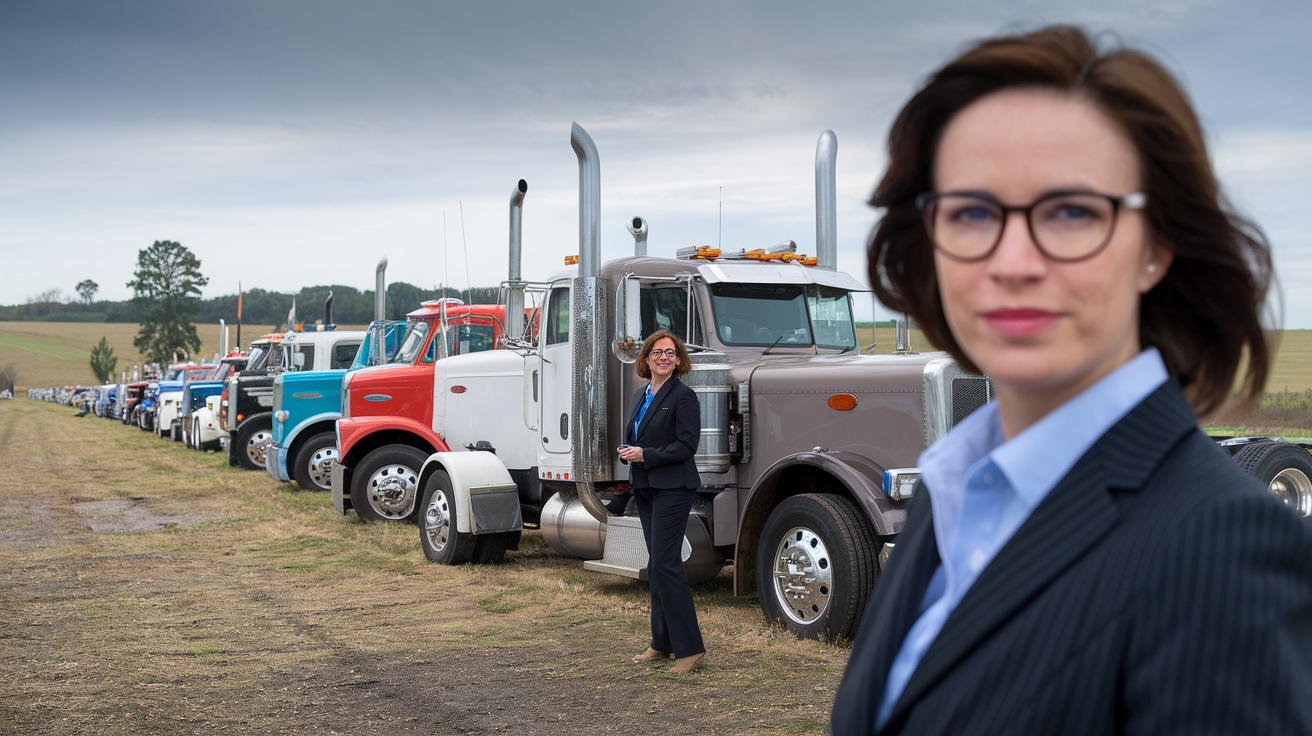The trucking industry, a vital component of global logistics, is navigating a critical period of transformation. Confronted with challenges like modernization, workforce retention, and public perception, it is striving to redefine itself while maintaining its essential role in the supply chain. In a recent discussion on the podcast Taking the High Road, a marketing and communications leader shared insights into the industry’s progress and the path forward.
A Career Rooted in Logistics
The speaker’s journey into the trucking industry began a decade ago, sparked by a move into logistics after working in various marketing roles. Initially unfamiliar with the field, the immersion into trucking was described as a “baptism by fire.”
After gaining experience in other sectors, including telecommunications and e-commerce, the return to logistics highlighted a lasting passion for the industry. This experience reflects the stories of many professionals who discover a deep connection to trucking, appreciating its complexities and opportunities.
Modernization and Innovation
Over the years, trucking has made meaningful strides in adopting modern technologies and practices. From advancements in emissions reduction to the implementation of route optimization tools, the industry is evolving to meet the demands of a rapidly changing world.
“Trucking has made massive strides to catch up with other industries,” the speaker noted. However, they emphasized that the unique challenges of trucking require solutions tailored specifically to its dynamics. Comparing trucking to other, more technologically advanced sectors can be misleading, as the operational landscape differs significantly.
While these advancements mark progress, there is still considerable ground to cover in fully integrating new technologies to improve safety, efficiency, and sustainability.
Enhancing the Industry’s Image
The trucking industry has often faced scrutiny over issues such as safety and environmental impact. To address this, companies are increasingly focusing on improving their public image and communicating the progress they have made.
Active participation in industry organizations and leadership programs has helped foster initiatives aimed at showcasing trucking’s contributions to the economy and society. These efforts aim to shift the narrative, highlighting the industry’s innovations and its critical role in modern life.
“We need to be better at communicating our advancements,” the speaker explained, pointing to the importance of transparency in countering negative perceptions and building trust.
Strategic Growth Amid Economic Challenges
Economic uncertainties have posed challenges for trucking companies, but there are ways to innovate without making significant financial investments. Businesses are encouraged to evaluate their internal processes, such as standard operating procedures and employee engagement initiatives, to identify opportunities for improvement.
“Just because you can’t invest heavily right now doesn’t mean you can’t make progress,” the speaker advised. By fostering a culture of continuous improvement and feedback, companies can position themselves for future success, even during challenging times.
Embracing the Next Generation
As younger professionals enter the trucking workforce, they bring fresh ideas and technological fluency that could help bridge longstanding gaps. This generational shift presents an opportunity for the industry to embrace innovation and build a collaborative, forward-thinking culture.
Looking toward the future, the speaker emphasized the importance of cultivating an environment that encourages creativity and adapts to changing demands.
A Future Driven by Innovation
The trucking industry stands at a crossroads, balancing the need for modernization with its core values. The path forward will require not only technological advancements but also a renewed focus on its people and their stories.
Through continued innovation, transparency, and resilience, trucking is poised to overcome its challenges and secure its place as a vital force in global logistics for years to come.

